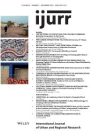The turbulence which characterized the 1980s created uncertainty as to the role and purpose of planning in liberal democracies. Instrumental rationality is no longer defensible as a guiding doctrine and major questions arise concerning the relationship of planning to the market economy and the political process. The realization that the problems confronting planners are not amenable to technocratic solutions has led to recognition of the political and therefore essentially ethical nature of the planning activity. However, whilst there is widespread recognition that fundamental ethical dilemmas underpin both planning practice and theory, little explicit consideration has been given to the nature of the normative frameworks available. The purpose of this paper is to critically review the ethical frames of reference implied in the most influential theories within planning and to evaluate their relevance to practice. The paper highlights the extent to which debate has been, and continues to be, dominated by procedural questions, the rejection of universalism in favour of relativity and subjectivity, and a focus on individual interests rather than more general concern with the common good. Reluctance to engage with debates of a more foundational nature concerning ends and values is questioned and planning theorists are urged to reconnect with the fundamental issue of planning’s contribution to the creation of desirable futures.
Details
Written by:
Heather Campbell, Robert Marshall
Digital Object Identifier (DOI)
10.1111/1468-2427.00208
About DOI
Read full article as PDF
Read full article as HTML
See the references for this article
